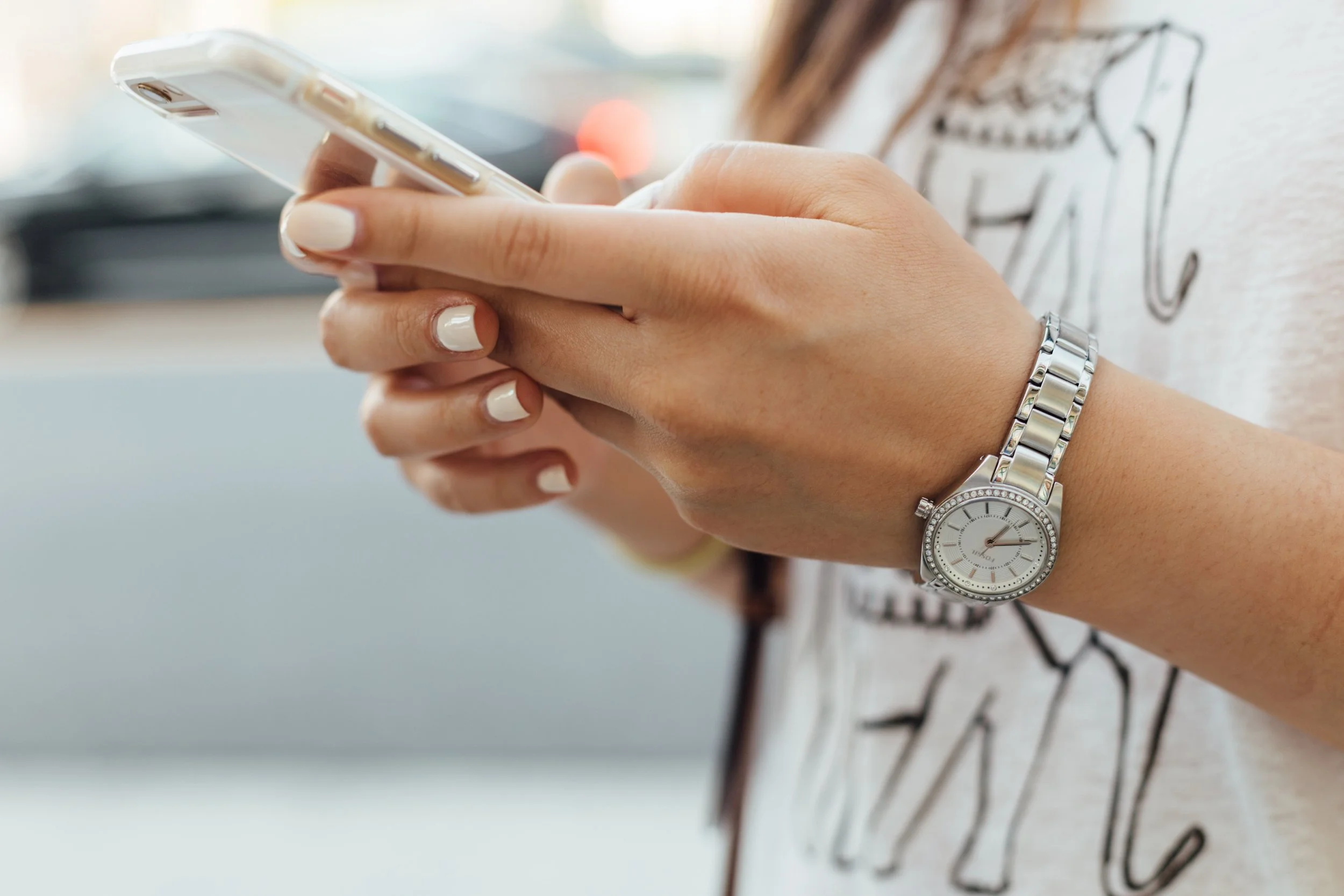Keep Your Cycle And Smartphone In Sync With One Of These Period Apps
Remember when you’d watch '90s and early '00s sitcoms and movies where a woman flicks through her day planner to find out that her period was late? It was a common trope that either indicated pregnancy, or offered a somewhat dramatic moment into a plot line. Sadly, with smartphones taking over, it’s not something we really see anymore, but with new technology comes the new apps that will help us keep our cycles in check and remind us to take our pill each day. The number of current period apps on the App Store is nearing three digits, so it can be really difficult to know which ones to actually go for, and which ones you’re majorly missing out on. We looked at some of the options currently available on the App Store to save you from app FOMO:
1. Flo
Courtesy: App Store
None of the below apps are difficult to manoeuvre, but Flo gets straight to the point. Like all of them, once you’ve put in the information that the app needs, it gets to work, telling you which day into your cycle you are (or how many days until your next period), with an easy calendar feature too. Each day you can log your symptoms and other variables such as weight, water, and sleep. The app also offers a timeline of ‘Health Insights’, which cover topics ranging from the specific symptoms that you’ve logged to vaginal odour and even genital piercings. If you’re unsure about something about your cycle, running through the Health Insights might answer some questions before you need to head to your GP. Plus this app can be password or Touch ID protected to keep your information safe.
2. Eve.
Source: App Store
Think Cosmo, but as a period app. Eve is fun, with a great layout, it’s icons and options are relatable, and it kind of feels like you’re answering questions about your cycle to your best friend. It won me over when I saw that it’s Flow options were Light, Medium, Heavy, and Crime Scene. Another thing to recognise about Eve is it’s community. Similar to Flo, it features content that’s relevant to the user, but also offers community groups that you can join, covering everything from sex and relationships, to mental health and sexual assault victim support. It’s also great because it’s sex section (aptly named, ‘Did you get some?’) also offers options such as Banana Free, which I thought was a great touch considering how heteronormative the narrative around periods and and birth control can be. Having said that, like many period trackers — and possibly heightened by it's millennial casual tone — its gendered language and commentary may cause some discomfort for users who don't identify as female, so it's not the best choice for those who want nothing more than a period tracker without everything else that Eve throws in.
3. Clue
Courtesy: App Store
Whilst it very much gets the job done, some of Clue's features can seem lacking in comparison to others. However, in terms of design, this works as a great option for the likes of GNC or those who don't identify as female but have periods and don’t want to be bombarded with pink, floral motifs. The app was rated the top free period tracker by the American College of Obstetricians and Gynecologist’s journal, so it's got the scientists' stamp of approval. When it comes to symptoms, it's very basic, and has a few misses. The ‘pain’ category of the log, for example, only offers four options, and excludes backache, which not only is a repeated symptom of mine, but a common one for many other people with periods. As petty as it sounds, not having vital signs and symptoms of mine there to be able to log and track each month didn’t really inspire me to use the app full-time — I’d much rather use one that covers the whole shebang.
4. Ovia Fertility Period Tracker
Source: App Store
Ovia is an option for those of you looking to start a family. It focuses primarily on getting pregnant. Each day you’re given a fertility score, which varies as you go through your cycle. The main page gives an insight into where you are in your cycle (not just the day, but the medical term for that part of the cycle), how many days until your next fertile window, and a fertility forecast. The community asks you questions that can build up more information in your profile, such as whether you’ve previously experienced miscarriage, or tried IVF before, as well as content to read all about periods, fertility and ovulation. There’s also a Special Conditions section where you can add any conditions you may experience, including endometriosis, PCOS, and even past cancer treatment.
5. Cycles
Source: App Store
Cycles is another app that offers good function for those who are looking for something less feminine and in your face. It’s simple layout offers a clear look at your cycle, indicating when you’re fertile, when you’re ovulating, when you’re dealing with PMS, and when your period itself is due to arrive, all using different coloured dots. Your log is separated into three categories: cycle, personal, and intimacy, and covers a wide range of symptoms, as well as offering a series of reminders for various events in your cycle, as well as a pill reminder. There’s also an option to connect with a partner on the app, so you can both see what’s going on with your cycle — an ideal feature for some couples.
6. Dot
Source: App Store
Dot offers three settings: prevent a pregnancy, plan a pregnancy, or track your period. Dot is based on Dynamic Optimal Timing, which is a (patent-pending) family planning method that calculates your chances of conception day by day using algorithms and data from previous periods. Dot claims that it can be used as form of birth control and that barrier methods (condoms etc.) should be used on days that have a higher risk of pregnancy. If you’re using the Prevent setting of the app, your cycle has to range between 20 to 40 days in length with less than 10 days variation in a year. Each to their own, but personally I’d stick to using such an app to just track my cycle.
7. My Calendar
Source: App Store
My Calendar is pretty basic, but it’s thorough. Featuring nearly 50 different symptoms and moods to log respectively, it’s a safe bet that you can paint a pretty accurate picture of your cycle each day. It also allows you to add your temperature, weight, and any notes or medicines that should be jotted down, as well as basic options for birth control pills and sexual activity. The app, like many others, offers reminders, but gives you the option of whether you want to receive a discreet reminder. Probably recommended for those who want to avoid a colleague glancing down at your period reminder as you sit in the meeting room.
8. YONO Period, Fertility, Ovulation Monitor
Source: App Store
The YONO app was created by YONO labs. It’s a pretty basic premise, that features a calendar to track aspects of your cycle, alongside a daily survey to track symptoms and other factors, and a wellness section that considers everything from physical body sensations and mood, to whether you had trouble sleeping the night before. YONO is primarily used, however, to work alongside the YONO earbud, which records your BBT (Basal Body Temperature) to calculate your data, syncing automatically to your smartphone and helping provide you with an insight to the best way to monitor your body, especially if you’re trying to conceive at some point. If that sounds of interest to you, be warned that the earbud doesn’t come cheap!
9. Life
Source: App Store
This app does more than track your periods. If effectively, yeah, you guessed it, tracks your life. If you’re using just the free version, you only get access to tracking your symptoms and mood. But, if you’re willing to pay the £1.79/week subscription, you get access to plenty more in Life Premium, including fitness, sleep, medicine, and more. The Premium version also allows you to use your own wallpapers, meaning that you can match it suit your style. It also offers reminders beyond ‘remember to take your pill’, including a customisable reminder for birth control rings, patches, and injections, as well as other wellness reminders such as refilling your prescription, undergoing a breast self-exam, and more. A solid investment for anyone who needs a little bit of help keeping track of things on their own.
At the end of the day, it’s each to their own. Different things work for different people, and that’s why it’s great that there are so many options available to us. Hopefully, our run-down of the best apps will help you make a decision for an app that works for you.

















